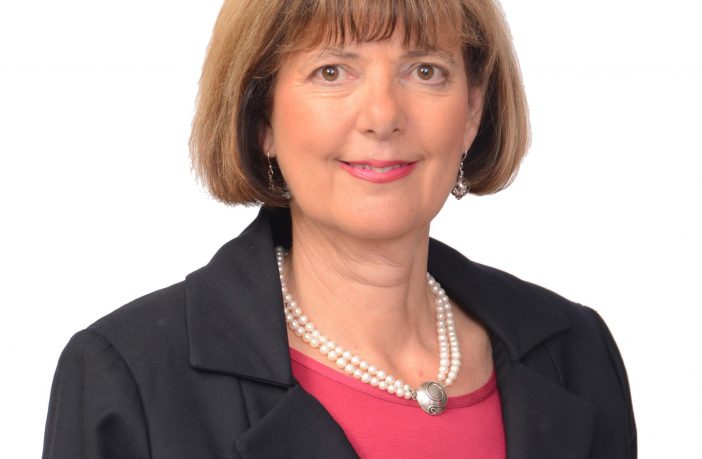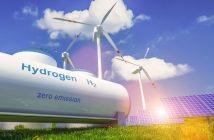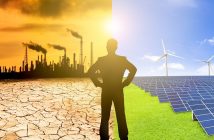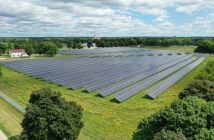Opinion
- Considering our social, economic and ecological crises, you would think the minister would be fighting for a just renewable energy future – not for the polluters.
- The air on the South African Highveld is some of the most polluted in the world.
- It kills and ruins the health of thousands of people every year.
You would think that, in the face of this reality, it would be a priority of the environment minister to ensure cleaner air. It seems, though, that Minister of Forestry, Fisheries and the Environment Barbara Creecy would rather side with polluters while scolding those trying to force her office to clean up its act.
In what is being called the Deadly Air or Umoya Obulalayo Case, non-profit environmental justice organisation groundWork and the Vukani Environmental Justice Movement in Action have taken Creecy and others to court. Read more
They are suing them for cleaner air in line with the government’s own plans from 2007. Those plans were promulgated by the Department of Environmental Affairs and Tourism at the time, but were simply not meaningfully implemented.
Rather than accepting the failures of her government and pledging to make up for lost time, Creecy chose to scold those suing her:
“I noted the emotive description by the applicants of the coal-fired stations of Eskom as ‘dirty’, but those dirty coal-fired stations provide the electricity which enabled the applicants and their attorneys to type and print out the very papers upon which they rely in this application.”
Creecy’s pearl clutching at the use of the word “dirty” is a shameful deflection and inhumane failure to grapple with the deadly reality of her government’s failures. There is so much wrong with her response. It is difficult to know where to start.
First, if the minister thinks the word “dirty” is overly emotive, I would like to see her send her kids to school under a cloud of pollution and watch them get asthma. I would like to see her meet the families dying of lung problems and tell them they are being overly emotive.
The pollution those power stations create is dirty. It is deadly. It kills and deteriorates the quality of life of so many. It also contributes to deadly climate change across the world.
Creecy’s response also smacks of hypocrisy. Yes, the groups suing her have to rely on Eskom’s dirty power, but that does not make them hypocrites, as Creecy problematically seems to be suggesting.
Most South Africans would gladly choose clean energy if they had a choice. It is our most affordable, job-creating and reliable energy source, which would most rapidly solve our load shedding woes.
Civil society has been fighting for clean energy and climate action for decades. However, the ANC government has stifled and crushed our renewable-energy aspirations.
The ruling party has forced in filthy new coal, fossil gas and oil projects and infrastructure over the objections of civil society. It has crushed climate action and renewable-energy development through inaction, red tape corruption and more.
The real hypocrisy lies with a government that forces dirty air on its people, and then blames those dying from pollution for having to rely on dirty electricity from the state-owned electricity utility, which is regulated by the government.
One small step forwards, several giant steps backwards
Some applauded Creecy when she finally held Eskom and Sasol accountable for violating our very weak air-pollution regulations. However, the bar is so low that we are congratulating a minister for merely upholding the rule of law.
We should not applaud our environment minister for doing the bare minimum requirements of her job, particularly when with her other hand she is weakening those very environmental regulations.
During the first days of South Africa’s first hard lockdown, Creecy moved ahead with weakening our air-pollution regulations. Her move made our coal-fired power regulations for sulphur dioxide 28 times weaker than even China’s, resulting in an estimated 3,300 additional deaths.
Slipping through regulations during the beginnings of a pandemic when everyone is distracted is some pretty dirty politics, if you ask me. That’s particularly the case when you consider that research shows that air pollution sharply increases the risks of dying from Covid-19.
A regressive realisation of environmental rights
In response to the “Deadly Air” case, the ruling party is arguing that in a context of poverty and inequality such as ours, we cannot move too quickly on cleaning up our air as it will hinder our development goals.
The problem with that argument is that it is precisely because of our reliance on an exploitative and extractive model of development that we are in this nightmare of poverty and inequality. It is no coincidence that South Africa is one of the worlds’ most unequal and most carbon-intensive societies.
The exploitation of people and planet are the dual foundations of the harmful minerals-energy complex, upon which apartheid was built. Rather than upending apartheid’s harmful economic structures, the ANC seems eager to deepen that exploitative model.
The evidence is overwhelming that a clean-energy future would create more jobs, more inclusive growth, ensure more reliable energy and help address the health and ecological crises we face. Rather than embracing that future, we are being locked into a failed status quo by an old guard who prefers polluting patronage and economic stagnation over innovation, job creation and transformation.
Thanks to their actions, South Africa is one of the least-prepared countries to embrace a clean-energy future. According to the World Economic Forum, South Africa is ranked 106th out of 115 countries for progress in the transition towards a more sustainable and secure global energy system.
Failed promises
President Cyril Ramaphosa has offered slick rhetoric on climate change. While he has finally begun to set up his commission on climate change, climate action always comes in the form of commissions and promises, hardly ever in the form of action.
Action is very much alive in the opposite direction, though. The president is spearheading destructive projects such as the proposed coal-powered Musina Makhado Special Economic Zone – an ecologically and socially disastrous project steeped in corruption, lack of due process and plain disregard for the interconnected climate and water crises we face.
We should not be surprised. Our president is a former coal-mining tycoon who appointed Gwede “the coal fundamentalist” Mantashe to head the Department of Mineral Resources and Energy. The result is an energy plan that locks us into more coal, polluting fossil gas and uneconomic nuclear power.
The ANC is deeply compromised and only has false promises to offer when it comes to putting forward a developmental model that tackles our interconnected social, economic and ecological crises.
Before we are forced further down this destructive, exploitative and unequal model, we must rise up to demand an alternative mode of development. We need One Million Climate Jobs and a Green New Eskom setting us on a just and rapid transition to a more socially owned, renewable energy future, which leaves no one behind.
At the least, we need our environment minister to fight for clean air, not for polluters. You’d think that would be her job, after all.
Author: Alex Lenferna
Alex Lenferna is a climate justice campaigner with 350Africa.org and serves as secretary of the Climate Justice Coalition. He is a Mandela Rhodes and Fulbright Scholar who holds a PhD focused on climate and energy from the University of Washington.











